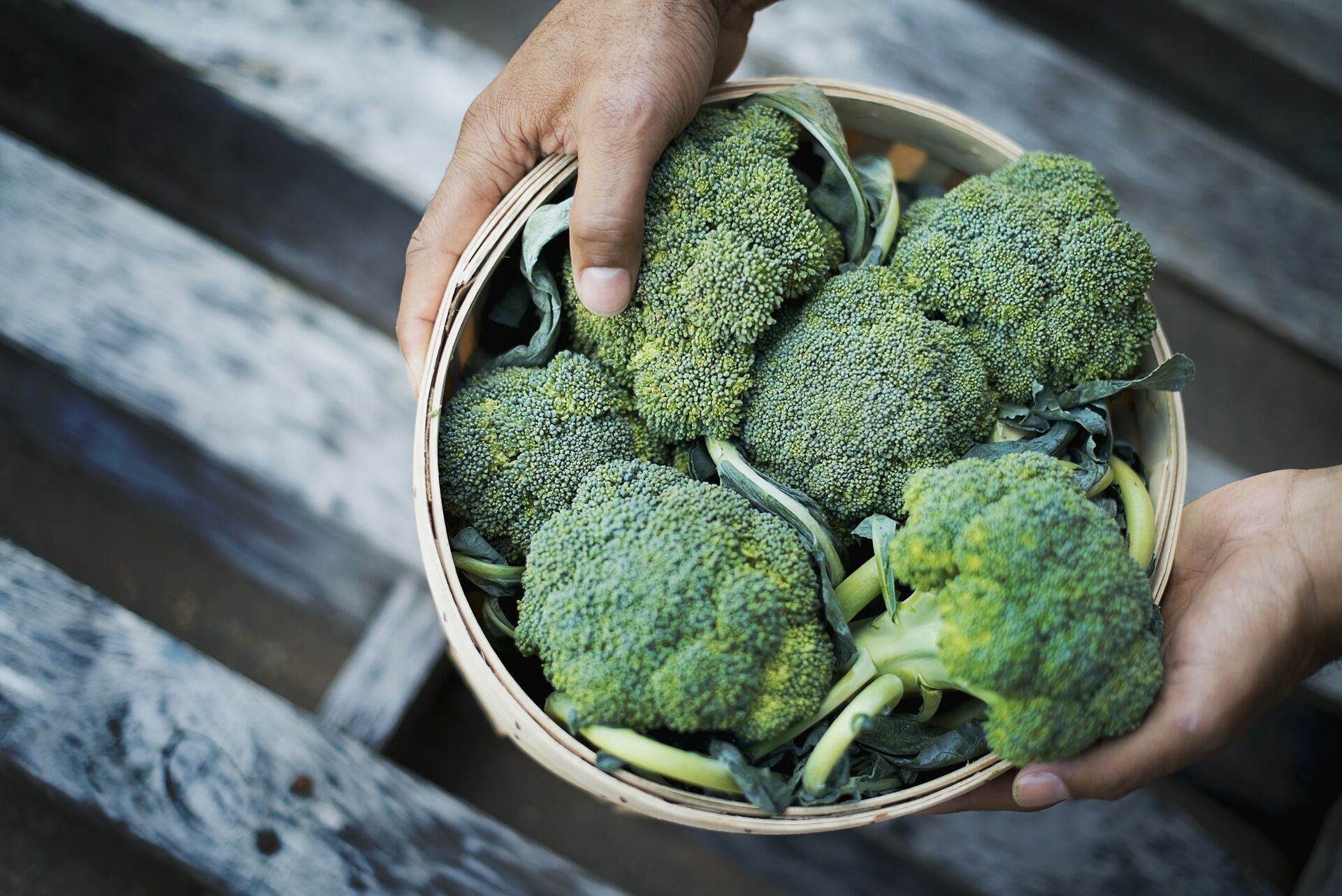

FAQs
Why Does Protein Make You Fart
Modified: August 5, 2023
Discover the answers to your general questions about why protein can sometimes cause gas and make you fart. Learn about the common causes and ways to prevent discomfort.
(Many of the links in this article redirect to a specific reviewed product. Your purchase of these products through affiliate links helps to generate commission for Under-tec.com, at no extra cost. Learn more)
Table of Contents
Introduction
Protein is an essential macronutrient that plays a crucial role in the growth, repair, and maintenance of tissues in our body. It is composed of amino acids and can be found in various food sources such as meat, poultry, fish, eggs, dairy products, legumes, and nuts. While protein is necessary for a healthy diet, some people may experience an unpleasant side effect when consuming protein-rich foods: flatulence.
Flatulence, commonly known as passing gas or farting, is a natural bodily function that occurs when undigested food particles are broken down in the large intestine, resulting in the release of gases like methane and hydrogen sulfide. While occasional flatulence is normal, excessive gas can be embarrassing and uncomfortable.
Many factors can contribute to increased flatulence, including the type and amount of food consumed, the individual’s digestive system, and the presence of certain gastrointestinal disorders. In the case of protein-induced flatulence, the culprit lies in the digestion process itself.
When we consume protein-rich foods, our digestive system works to break down the protein molecules into amino acids, which can be absorbed into the bloodstream and used by the body. This process is facilitated by enzymes produced in the stomach and small intestine. However, not all proteins are digested completely, and some undigested protein reaches the large intestine.
Once in the large intestine, bacteria present in the gut ferment the undigested protein, leading to the production of gases such as hydrogen, methane, and carbon dioxide. The accumulation of these gases in the intestines can result in bloating, abdominal discomfort, and increased flatulence.
What is protein?
Protein is an essential macronutrient that is made up of amino acids. It is often referred to as the building block of life because it is involved in various functions within the body. Proteins are responsible for repairing and rebuilding tissues, producing enzymes and hormones, supporting immune function, and providing energy when carbohydrates are scarce.
Amino acids are organic compounds that are essential for the proper functioning of our bodies. They are classified into three groups: essential, non-essential, and conditional. Essential amino acids cannot be produced by the body and must be obtained through our diet. Non-essential amino acids can be synthesized by the body, while conditional amino acids are only needed in certain situations, such as during illness or stress.
Proteins can be found in a wide range of food sources, both animal-based and plant-based. Animal-based sources include meat, poultry, fish, eggs, dairy products, and seafood. These sources of protein are considered complete proteins because they contain all the essential amino acids that our bodies need. Plant-based sources of protein include legumes, nuts, seeds, and grains. While plant-based proteins may be incomplete and lack certain amino acids, they can be combined to create a complete protein profile.
The recommended daily intake of protein varies depending on factors such as age, sex, weight, and activity level. Generally, it is recommended to consume about 0.8 grams of protein per kilogram of body weight. However, this may increase for athletes, bodybuilders, or individuals recovering from injuries.
Protein is not only important for muscle growth and repair, but it also plays a crucial role in various bodily functions. It helps to maintain healthy skin, hair, and nails, supports the immune system, and assists in the production of enzymes and hormones. Additionally, protein is known to promote satiety, making it an important component of weight loss and weight management.
Overall, protein is a vital nutrient that is essential for our overall health and well-being. It serves as the building block for our bodies and plays a crucial role in various physiological functions. Incorporating a variety of protein-rich foods into our diet is important to ensure that we meet our daily protein requirements and maintain optimal health.
Digestion process
The digestion of protein begins in the stomach, where it is broken down by stomach acid and the enzyme pepsin. The acidic environment of the stomach helps to denature the protein, unfolding its complex structure and exposing it to the action of digestive enzymes. Pepsin breaks down the protein into smaller polypeptides, which are then further broken down in the small intestine.
In the small intestine, the pancreas releases enzymes such as trypsin, chymotrypsin, and elastase, which further break down the polypeptides into smaller peptides and amino acids. These enzymes work by cleaving the bonds between the amino acids, resulting in the formation of individual amino acids and dipeptides or tripeptides.
The individual amino acids, dipeptides, and tripeptides are then absorbed into the bloodstream through the lining of the small intestine. Once in the bloodstream, the amino acids are transported to different tissues in the body, where they are used for various functions such as protein synthesis, energy production, and other metabolic processes.
Not all proteins are completely broken down and absorbed in the small intestine. Some proteins, particularly those that are more resistant to digestion, may reach the large intestine partially undigested. This can happen due to factors such as the type of protein, cooking methods, and individual variations in digestive enzymes.
In the large intestine, these undigested proteins become available as a food source for the bacteria that reside there. The bacteria ferment the proteins, producing gases such as hydrogen, methane, and carbon dioxide. This fermentation process can result in increased gas production, leading to bloating and flatulence.
It’s worth noting that the digestion process can vary from person to person, and some individuals may be more susceptible to protein-related bloating and flatulence than others. Additionally, factors such as a high protein diet or a sudden increase in protein intake can also contribute to increased gas production and discomfort.
In summary, the digestion of protein is a complex process that involves the action of enzymes in the stomach and small intestine. Some proteins may reach the large intestine undigested, where they can be fermented by gut bacteria, leading to the production of gases and flatulence.
Why does protein cause gas?
Protein-rich foods have the potential to cause gas and flatulence due to their composition and how they are digested. While protein is an essential macronutrient, certain factors can contribute to increased gas production when protein is consumed.
One of the main reasons protein can cause gas is the presence of specific types of amino acids. Some amino acids, such as cysteine, methionine, and branched-chain amino acids (leucine, isoleucine, and valine), are known to produce more gas during digestion. These amino acids contain sulfur, which is broken down by bacteria in the large intestine and produces smelly gases like hydrogen sulfide. This can contribute to the foul odor associated with flatulence.
In addition to the composition of protein itself, the way it is digested can also play a role in gas production. When proteins are not fully broken down and absorbed in the small intestine, they can reach the large intestine partially undigested. The undigested proteins serve as a food source for the bacteria present in the gut, leading to fermentation and gas production.
The type of protein-rich foods consumed can also impact gas production. Some proteins, such as those found in beans, lentils, broccoli, cabbage, and onions, contain complex carbohydrates known as oligosaccharides. These oligosaccharides are not easily broken down by human digestive enzymes, but they are fermented by gut bacteria, leading to increased gas production.
In some cases, individuals may have a sensitivity or intolerance to certain proteins, such as lactose in dairy products or gluten in wheat. These sensitivities can disrupt the normal digestion and absorption of proteins, leading to symptoms like bloating, gas, and abdominal discomfort.
Lastly, other factors such as a high protein diet or a sudden increase in protein intake can also contribute to increased gas production. When the body is not accustomed to processing large amounts of protein, it may struggle to break down and absorb the protein effectively, leading to increased fermentation and gas production in the gut.
In summary, protein can cause gas and flatulence due to the presence of certain amino acids, incomplete digestion, fermentation by gut bacteria, sensitivity to specific proteins, and high protein intake. Understanding these factors can help individuals navigate their diet and make adjustments to minimize discomfort while still meeting their protein needs.
Types of proteins that may lead to flatulence
While protein is an important macronutrient, some types of proteins have a higher likelihood of causing flatulence and gas production. Understanding which proteins are more likely to lead to flatulence can help individuals make informed dietary choices to minimize discomfort. Here are some types of proteins that may contribute to increased gas production:
- Legumes: Legumes, including beans, lentils, and chickpeas, are known to cause flatulence due to their high fiber content and the presence of oligosaccharides. These complex carbohydrates are not easily broken down in the small intestine and are instead fermented by gut bacteria, leading to gas production.
- Dairy products: Some individuals may experience flatulence and discomfort when consuming dairy products due to lactose intolerance. Lactose, a sugar found in milk and dairy products, requires the enzyme lactase to be properly digested. If an individual lacks sufficient lactase enzymes, lactose remains undigested and is fermented by gut bacteria, resulting in gas production.
- Cruciferous vegetables: Vegetables like broccoli, cauliflower, cabbage, and Brussels sprouts are rich in a type of sugar called raffinose. Raffinose is not easily broken down in the small intestine, and when it reaches the large intestine, it is fermented by gut bacteria, leading to increased gas production.
- Onions and garlic: Onions and garlic contain sulfur compounds that can contribute to increased gas production. These sulfur compounds are broken down by gut bacteria, resulting in the production of gases like hydrogen sulfide, which can have an unpleasant odor.
- Protein powders and supplements: Protein powders and supplements, particularly those derived from whey or casein, may cause gas and bloating in some individuals. This could be due to a sensitivity to lactose or other components in the protein powder.
It’s important to note that not everyone will experience flatulence or discomfort after consuming these types of proteins. Each person’s digestive system is unique, and factors such as gut bacteria composition and enzyme production can vary. Additionally, individual tolerance to certain proteins may vary. Experimenting with different protein sources and observing personal reactions can help identify which proteins may lead to increased gas production.
Overall, while these proteins have the potential to cause flatulence, it does not mean that they should be completely avoided. They still provide valuable nutrients and play a role in a balanced diet. Making dietary adjustments, such as slowly increasing the intake of these proteins or combining them with other foods to ease digestion, can help reduce the likelihood of experiencing flatulence while still benefiting from their nutritional value.
How to reduce protein-related flatulence
Experiencing excessive flatulence and discomfort after consuming protein-rich foods can be bothersome. While it may not be possible to completely eliminate flatulence, there are several strategies that can help reduce protein-related gas production and minimize discomfort. Here are some tips to consider:
- Gradually increase protein intake: If you are planning to increase your protein intake, it is important to do so gradually. Rapidly increasing protein consumption can overwhelm the digestive system and lead to increased gas production. Start by adding small amounts of protein-rich foods to your diet and gradually increase the portion sizes over time.
- Choose proteins wisely: Opt for proteins that are easier to digest. Animal-based proteins like lean meats, poultry, and fish are generally well tolerated and less likely to cause flatulence compared to plant-based proteins. Additionally, selecting proteins with lower sulfur content, such as chicken and fish, can help reduce the production of smelly gases.
- Soak and cook legumes: If you consume legumes, consider soaking them overnight before cooking. Soaking legumes helps to reduce their oligosaccharide content, which can contribute to gas production. Additionally, cooking legumes thoroughly can further break down complex carbohydrates and make them more digestible.
- Chew food thoroughly: Properly chewing your food aids digestion by breaking down food particles into smaller fragments. This can make it easier for digestive enzymes to access proteins and other nutrients, reducing the workload on the digestive system and potentially minimizing gas production.
- Try digestive aids: Certain digestive aids, such as over-the-counter enzymes like alpha-galactosidase, can help break down complex carbohydrates found in legumes and cruciferous vegetables. These enzymes can be taken before meals to assist in digestion and reduce the likelihood of gas production.
- Manage lactose intolerance: If you are lactose intolerant, consider opting for lactose-free dairy products or exploring alternative sources of calcium and protein, such as fortified plant-based milks or lactose-free protein powders.
- Monitor portion sizes: Consuming large portions of protein in one sitting can put additional strain on the digestive system, potentially leading to increased gas production. Consider spreading your protein intake evenly throughout the day by incorporating smaller, protein-rich snacks between meals.
- Keep a food diary: Keeping track of the foods you eat and any symptoms or reactions you experience can help identify specific sources of gas and discomfort. This can be particularly helpful when pinpointing individual triggers and making modifications to your diet accordingly.
It is important to note that these tips may not work for everyone, as individual responses to specific proteins and dietary changes can vary. If flatulence persists or is accompanied by other concerning symptoms, it is advisable to consult with a healthcare professional for further evaluation and guidance.
By implementing these strategies and making adjustments to your protein intake and food choices, you can potentially reduce protein-related flatulence and enjoy a more comfortable digestion experience.
Conclusion
Protein is an essential macronutrient that plays a vital role in our overall health and well-being. However, for some individuals, consuming protein-rich foods can lead to excessive gas and flatulence, causing discomfort and embarrassment. Understanding the reasons behind protein-related flatulence and implementing strategies to reduce gas production can help mitigate these symptoms and make the digestion process more comfortable.
Protein-related flatulence can be attributed to factors such as the composition of proteins, incomplete digestion, fermentation by gut bacteria, and sensitivities to specific proteins. Certain types of proteins, such as legumes, dairy products, cruciferous vegetables, and onions/garlic, have a higher likelihood of contributing to gas production. However, it’s important to note that individual responses to proteins can vary, and not everyone will experience flatulence after consuming these foods.
To minimize protein-related flatulence, several strategies can be employed. Gradually increasing protein intake, choosing proteins that are easier to digest, soaking and cooking legumes, thorough chewing, using digestive aids, managing lactose intolerance, monitoring portion sizes, and keeping a food diary can all play a role in reducing gas production and discomfort.
It’s important to remember that everyone’s digestive system is unique, and what works for one person may not work for another. Experimentation and paying attention to personal responses to different proteins and dietary changes is key in identifying individual triggers and finding the best approach to manage flatulence.
While it may be challenging to completely eliminate flatulence, implementing these strategies can help individuals navigate their diet and minimize discomfort while still enjoying the many benefits of protein-rich foods. As always, if flatulence persists or is accompanied by concerning symptoms, seeking guidance from a healthcare professional is advisable to ensure an accurate diagnosis and appropriate treatment if necessary.










